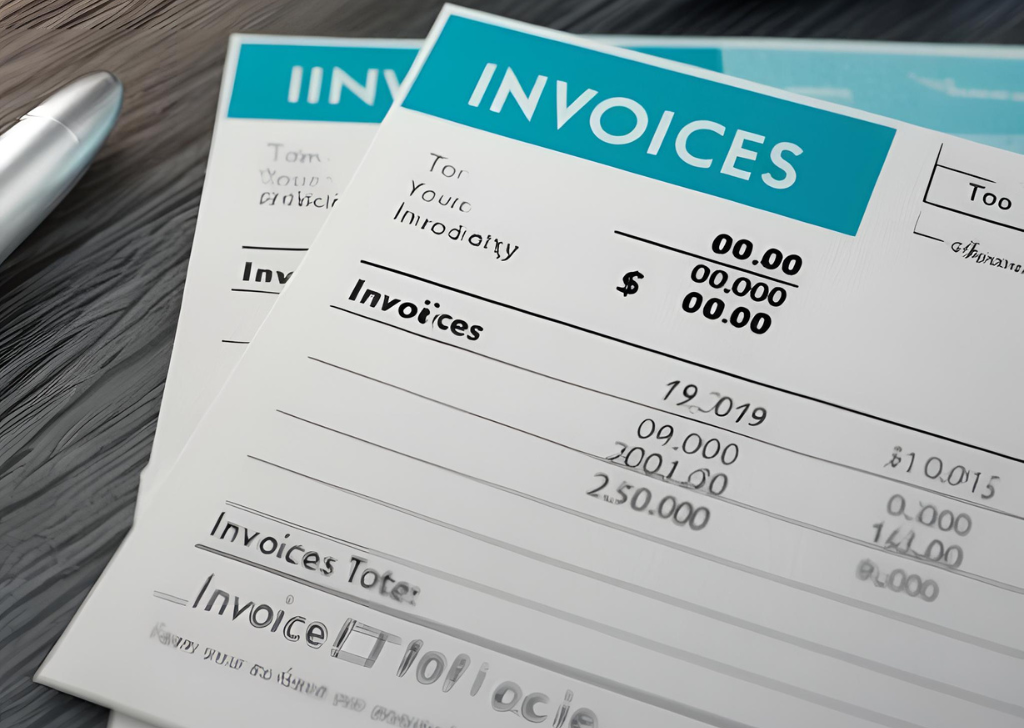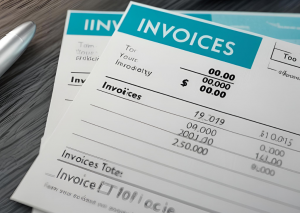Resilience depends on having financial flexibility as a freelancer. A rigid budget that does not allow for flexibility may leave you insufficiently prepared to change course in the face of unforeseen circumstances. Make a budget that you can adjust to account for changes, whether they stem from unforeseen costs, an abrupt change in your work, or an unforeseen personal objective. You may make informed decisions without any financial constraints due to this flexibility. The management of cash flow is crucial to freelance financial achievement. Even though it’s straightforward, several individuals neglect to check their income and spending. To keep organized, use apps or spreadsheets. Record your earnings, anticipated payment dates, and quantities in writing.

Invoice Promptly and Manage Large Payments
As soon as you complete a project, send invoices. Request early payments for larger tasks to cover expenses and reduce risks. Consider providing retainers to loyal customers. They facilitate planning and provide a consistent income. These few changes might save you a lot of headaches in the future. When a substantial payment comes in, break it into smaller amounts. By doing this, you may spread out your money over several months rather than using it all at once. A buffer account can increase stability. As a contingency plan for turbulent times, save away a percentage of your salary.
Automate Savings and Build a Financial Buffer
Establish automatic transfers to a different savings account as your financial buffer from your primary income account. Plan frequent transfers to occur every month or every two months, following your revenue cycle. With percentage-based transfers, you may designate a part of your income to be moved automatically, guaranteeing proportionate savings. By automating your savings, you may avoid the hassle of manual transfers and maintain your savings goal more easily.
Diversify Income Streams and Upskill
Diversifying their sources of revenue would help freelancers be financially stable and less dependent on any one customer or sector. This may be accomplished by growing their clientele, investing in their abilities, and generating passive revenue through affiliate marketing, digital goods, e-books, or advertising. In addition to increasing income possibilities, this lessens the impact of a single customer or project failing. Regular skill development can also improve marketability, draw in a variety of clients, and lead to higher-paying assignments. All things considered, diversifying sources of income fortifies financial buffers and acts as a buffer against changes in revenue.
Make a strategy to effectively pay off whatever debt you may have. Give high-interest bills priority, and for simpler administration, think about combining many obligations. Use a percentage of your freelancing income to gradually pay down current accounts and live within your means to prevent taking on new debt.
Set Savings Goals and Build an Emergency Fund
Ascertain your income and spending before establishing savings objectives. Determine your desired level of financial stability and your current financial status to ascertain your recurring savings goals. Make sure your emergency fund is sufficient to cover three to six months’ worth of necessities. Strive to accumulate a long-term cushion that can cover costs for up to a year. Establishing savings objectives aids in sustaining your drive and self-control. You can guarantee steady progress toward your objectives by automating your savings. Establish automatic transfers to a different savings account as your financial buffer from your primary income account. Plan frequent transfers that correspond with your income cycle on a weekly or bi-monthly basis. By allowing you to designate an amount of your income for automatic transfers, percentage-based transfers guarantee proportionate savings. Sticking to your savings goal is made easier by automating your savings, which removes the hassle of manual transfers.
A crucial safety net that provides both monetary and psychological stability is an emergency fund. In terms of funds, it offers resources to pay for unanticipated costs such as auto repairs, medical expenditures, or job loss. Knowing that you are ready for unforeseen interruptions provides you with mental peace of mind. Although your specific goal may depend on your situation, financial experts usually advise having enough money to cover three to six months’ worth of spending. Establishing an emergency fund may seem difficult, but even modest, regular payments will build up over time and offer crucial assistance when you most need it.
Develop a Balanced Portfolio and Reduce Stress
Having a diverse financial portfolio is one of the main ways to increase resilience. Your finances can be stabilized and risks reduced during market downturns with a diversified portfolio that includes assets such as cash, bonds, and even other forms of investment. You may build a financial cushion that can withstand losses in a particular sector while reaping the benefits of increases in another by distributing your assets throughout many asset classes. Striking this balance requires routinely assessing and modifying your portfolio in conjunction with market movements and your risk tolerance.
There are other aspects of financial stress than money. It has an impact on your state of mind and energy. Stressing about overdue expenses may wear you out. Try following a daily routine to cope with this. Approach freelancing the same as you would any other employment. It may be simpler to stay focused and productive when work hours are set. Establish clear objectives. Having a goal keeps you motivated, whether it’s paying off debt or saving for a vacation. When it’s essential, figure out how to say “no.” Taking on every work might exhaust you. Concentrate on jobs that suit your abilities and pay fairly. To meet people, look for groups for freelancers. Talking about your difficulties might help you feel more in control of them.

Stay Consistent and Reassess Financial Plans
Financial management for freelancers demands constant work and flexibility. You may work toward preserving more steady cash flow and taking care of both immediate stability and long-term financial objectives by putting variable income-appropriate budgeting techniques into practice. As your circumstances and profession change, keep in mind that effective financial management is a continuous process that has to be reviewed and adjusted frequently. You may try to transform the difficulty of inconsistent income into a chance for stability and financial progress if you are persistent and use the appropriate strategy.





